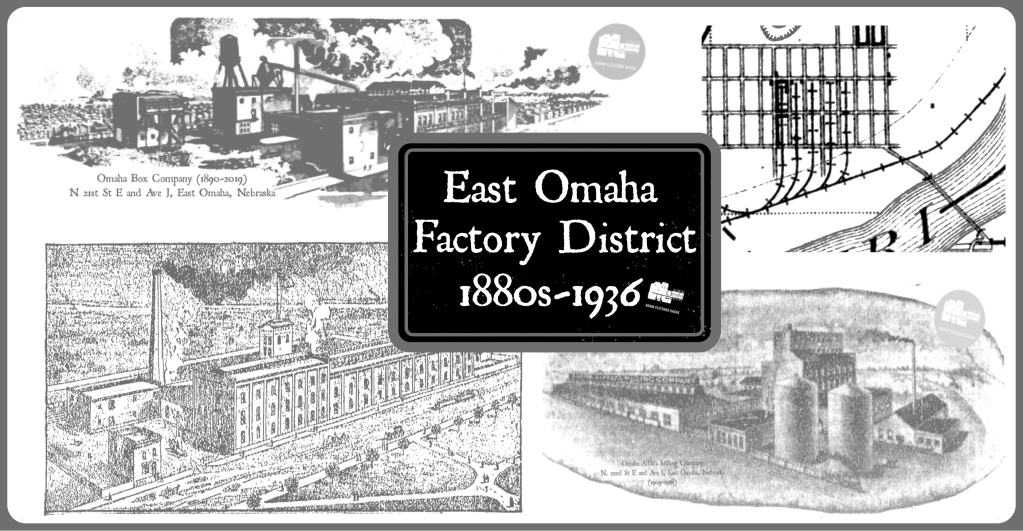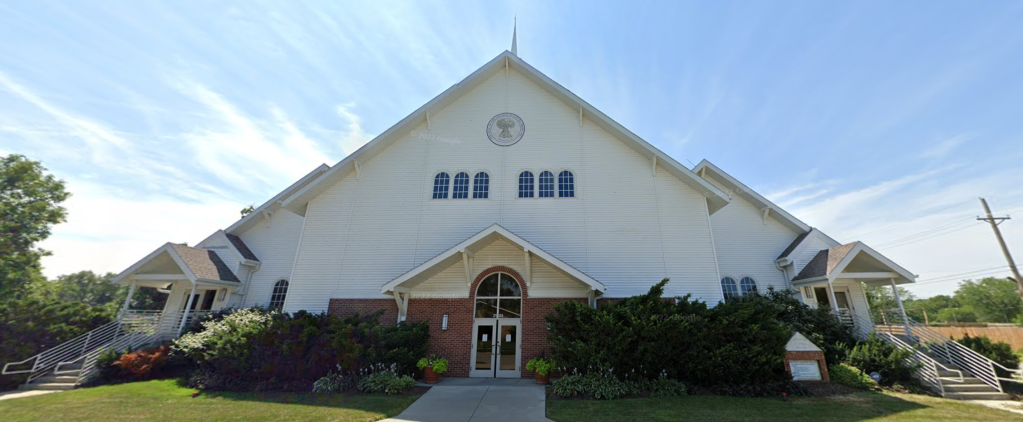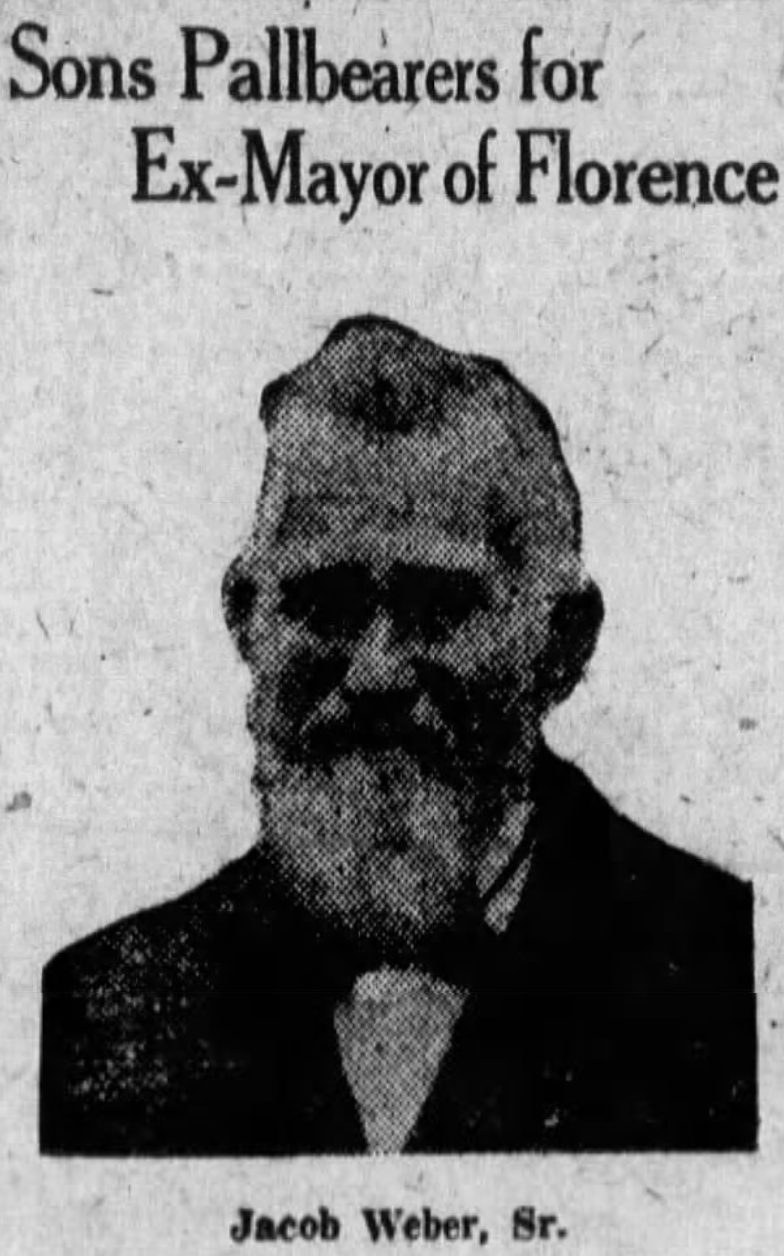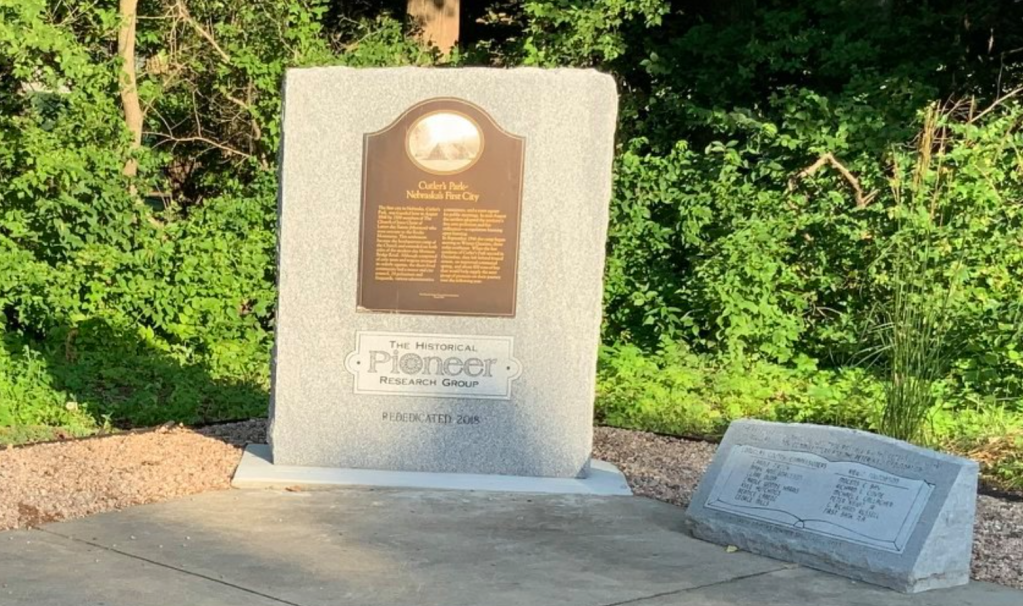The first-ever Black-owned, operated and filmed theater company in the world was led from North Omaha. With films produced in Los Angeles, the company was based in the community for from 1915 to 1927. The company’s legacy is largely forgotten in Omaha today. This is a biography of one of its founders, George P. Johnson (1885-1977).
Early Years

Born in Colorado Springs, Colorado in 1885, George graduated from Hampton Institute, Virginia, in 1904. Today, Hampton University is an 150+ year-old HBCU.
After settling in Tulsa, Johnson started the first Black newspaper in the territory called The Tulsa Guide. He moved to Omaha in 1913 and became the first African American employee at the U.S. Post Office. George Johnson and his wife and newborn lived at 2815 Pratt Street in the Bedford Place neighborhood, a house which still stands today.
In 1915, D.W. Griffith’s racist, white supremacist celebration movie called The Birth of a Nation was a smash hit in Omaha. Despite protests and demands from leading Black leaders, several major theaters downtown held over the film for extra showings and demand was high. This incensed many people, including George Johnson.
African Americans were routinely shut out of the fledging film industry from the time it started in 1895. However, there were a few notable early efforts for Blacks to break into the industry. George Johnson’s brother Noble had moved to Los Angeles to join the film industry, and soon after The Birth of a Nation‘s popularity, the brothers decided to partner together to make space for African Americans in this line of work. Their movies were silent, and they were generally referred to as “race films.”
Starting a Black-Owned Film Company

In 1915, George and Noble launched the Lincoln Motion Picture Company in North Omaha. With Noble directing and starring in the productions in Los Angeles, George’s official title was general booking manager, and he served as a screenwriter, movie producer, and film distributor for the company. He was a board director and invested heavily in the company, as well. Working from the den of his rented house on Pratt Street, Johnson handled all aspects of distribution throughout the country.
He said that the company’s films would,
“…picture the Negro as he is in his every day life, a human with human tendencies, and one of talent and intellect.”
Their first feature-length film was called, The Realization of a Negro’s Ambition (1916). Starring as a Black engineer who strikes oil and becomes a millionaire, actor Noble Johnson portrays a formerly disempowered man becoming a strong, independent man. Writing about the film, George described it as, “the first successful, Class A Negro motion picture minus all burlesque and humiliating comedy.”
According to one article, “the Johnson brothers’ movies featured black soldiers, black families and black heroes, concepts foreign to most mainstream films at that time.” Other films they created were, A Man’s Duty (1919); By Right of Birth (1921); Trooper of Troop K (1917), and; The Law of Nature (1921). Their films rented for $15 to $20 per day, which was average for that era.
The Lincoln Motion Picture Company was widely known to hire only lighter-complexion actors for its all-Black casts, and Noble Johnson was no exception to this rule. Academic papers have said of him that he was “selling-out” his race, and that he attempted to pass as white when it was profitable to him. According to one paper, the company was said to rely on a racist philosophy popular within some circles:
“If you’re light, you’re all right;
If you’re brown, stick aroun’;
But if you’re Black, stand back.”
Oscar Micheaux, the most notable African American actor of this era, planned to move to North Omaha in 1918 to join Johnson in producing and distributing Black movies nationwide. However, the deal didn’t work, and Johnson ended up distributing the work of Micheaux from North Omaha. Micheaux’s film company would eventually succeed where the Johnson brothers’ company failed.
In 1921, Booker T. Washington appeared in the company’s sixth film, “By Right of Birth.” However, the Lincoln Motion Picture Company started failing that year and couldn’t recover. The limited incomes of Blacks in the United States during this era didn’t allow mass moviegoing, and financiers wouldn’t keep the company’s negative books afloat.
Before Lincoln closed, George Johnson made known his belief that the company suffered from the “unwillingness of the white industry to handle movies made by Negroes that did not conform to the usual stereotypes.” He also believed that since most Black movie theaters were owned by white people, there was a determination to show only burlesques and “funny colored pictures” which featured Black face and demeaning images of African Americans.
After the company closed in 1923, George moved to Los Angeles and established the Pacific Coast News Bureau. The Bureau focused on sharing Black news across the country, and it lasted until 1927. George kept working for the U.S. Post Office for the rest of his working life.
Remembering His Work
George P. Johnson died in October 1977, and is buried in Rose Hills Memorial Park in Los Angeles, California.
In addition to starting the Lincoln Motion Picture Company, Johnson also became the first and most thorough collector of African American films in the nation. He started collecting newspaper clippings, photographs, publicity material, posters, correspondence, and business records related to early Black film companies, Black films, films with Black casts, and Black musicians, sports figures and entertainers when he began the Lincoln Motion Picture Company in 1915, and continued until he died. The collection, which includes 70 boxes, is the largest and most thorough of its kind in the world and today is housed at the University of California Los Angeles.
Nationally, the legacy of George Johnson is largely overshadowed by his brother Noble Johnson (1881-1978) today, but both are forgotten in Omaha. There are no memorials or tributes to the brothers or their business, or their effect on culture in the United States. The house where the Johnsons lived in Omaha still stands, but isn’t acknowledged as historically significant by any government entity today.
Maybe someday North Omaha will acknowledge Johnson as one of our own.
You Might Like…
MY ARTICLES ON THE HISTORY OF THEATERS IN NORTH OMAHA
LOCATIONS: Grand Theater | Beacon Theater | Ritz Theater | Minne Lusa Theatre | North Star Theater aka Ames Theater | Corby Theater | Alhambra Theater | Suburban Theater | Military Theater | Diamond Theaters | Lothrop Theater
PEOPLE: Frank E. Goff | George P. Johnson
Elsewhere Online
- “George P. Johnson Negro Film Collection, 1916-1977” Online Archive of California
- “Waiting for the Spotlight” by Ben A., Glenasha W., and Celine H. for Making Invisible Histories Visible for Omaha Public Schools
- George P. Johnson: Collector of Negro Film History (1970) University of California
- “George P. Johnson Negro Film Collection” UCLA Library
- “George Johnson” official entry in the IMDB
- 1917 “Press Release from the Lincoln Motion Picture Company,” National Museum of African American History and Culture






Leave a comment